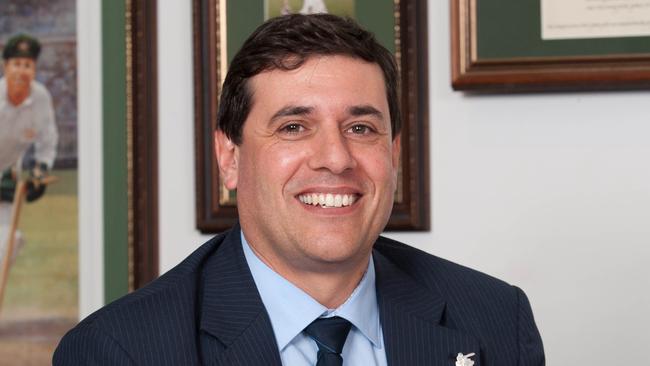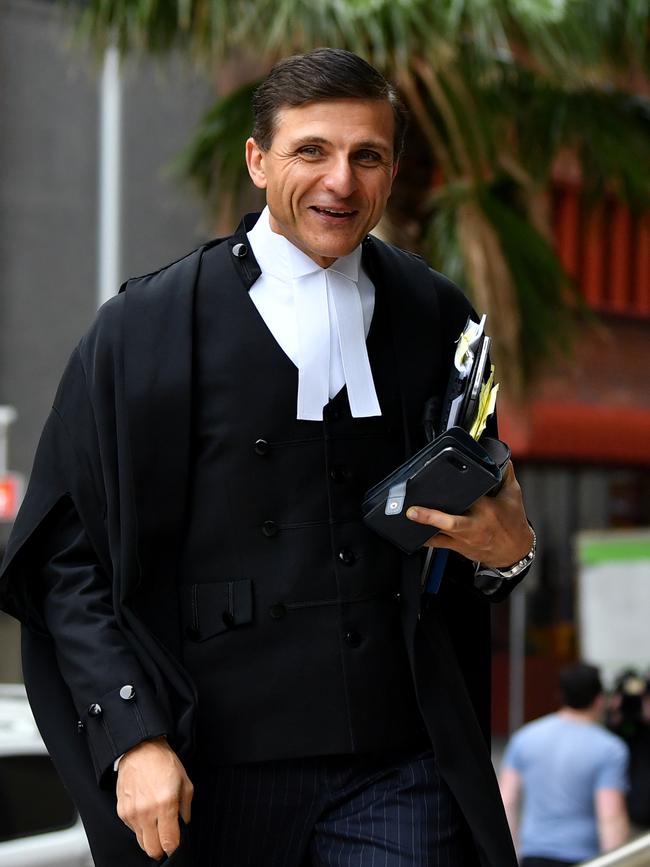Labor urged to act swiftly on judicial body
The Albanese government is under pressure to honour its pledge to set up a federal judicial commission following a High Court decision that protects judges from being personally sued.

The Albanese government is under mounting pressure to honour its longstanding pledge to set up a federal judicial commission in the wake of a High Court decision that gives judges absolute immunity from lawsuits.
The decision, handed down on Wednesday, stripped a Queensland father of the $300,000 in damages he was awarded after being wrongly jailed for contempt by Federal Circuit Court judge Salvatore Vasta.
The judgment left “Mr Stradford” (a pseudonym) without redress, with the High Court acknowledging that an ex gratia, or “act of grace”, payment by the federal government – at the sole discretion of the Finance Minister – was his only hope of compensation for the six terrifying days he spent in jail.
Both the Law Council of Australia and senior barristers have called upon Labor to make good its commitment to a judicial commission, to ensure judges can be held to account for their conduct.
Leading Sydney silk Arthur Moses told The Australian there was “not a moment to linger” in establishing such a body.
“The need for a federal judicial commission is only heightened by the outcome of this decision, and it is rather concerning that despite longstanding calls by the profession nationally that there should be a federal judicial commission, we do not have one in place in 2025,” Mr Moses said.

Most states already have independent judicial commissions to examine complaints about serving judges.
In September 2022, federal Attorney-General Mark Dreyfus agreed in principle to the Australian Law Reform Commission’s recommendation to establish a federal judicial commission, and in January 2023 a taskforce in his department released a discussion paper to guide debate.
But more than two years later, little seems to have been achieved.
A spokesperson for Mr Dreyfus declined to answer questions about what progress had been made on the proposal and whether the government would provide funding to support the establishment of such a body.
In a one-sentence statement, the spokesperson said: “The design and timing of the establishment of a federal judicial commission continues to be under consideration by the Australian government.”
The Law Council of Australia will make the push for a commission part of its call to parties in the upcoming federal election, noting “with some concern” in a pre-budget submission to the government that the Judicial Commission Taskforce no longer appears in the Attorney-General’s Department’s Organisational Chart.
Law Council president Juliana Warner told The Australian the High Court’s decision in the Vasta case was appropriate “but there must still be accountability”, noting that the council had been urging a federal judicial commission since 2006.

“It would be a really positive development because it’s important that the public has confidence in the judicial process; it’s a core part of our democracy,” she said.
Mr Moses SC, a former president of both the Law Council and the NSW Bar Association, said the absence of a federal judicial commission was “unacceptable in an age of transparency and accountability”.
“It is important for maintaining public confidence in the judiciary because members of the judiciary are not above the law, and they, of course, must be accountable for their conduct.
“A federal judicial commission would investigate matters which cannot be completely addressed by an appeal court as to whether a judicial officer has behaved or conducted himself or herself in a manner that is unsatisfactory or renders them unfit to hold office – that is not the role of an appeal court.”
Mr Moses favours a model similar to the NSW judicial commission, but said some form of statutory scheme to give affected parties a right to redress and a means to obtain compensation should also be considered.
“Parliament may need to consider as a result of this judgment whether there needs to be some form of statutory scheme for compensation that could be accessed by individuals who in essence are wrongfully imprisoned as a result of an action taken by a judicial officer of his or her own motion that has led to them being incarcerated.”
At present the only way of removing a judge from office is the “nuclear option” of a vote of both houses of parliament.
Submissions for responding to the Attorney-General’s discussion paper revealed experts, lawyers and former judges overwhelmingly thought even High Court justices should be subject to a judicial commission.
Former Federal Court judge Alan Robertson SC wrote in a submission to Mr Dreyfus that if High Court judges were excluded, “there would be unnecessary fragmentation and the difficulty or embarrassment the court experienced in 2020,” seemingly referring to former High Court judge Dyson Heydon, who was found to have sexually harassed six female associates in his decade on the bench. A separate process had to be established to deal with those complaints.




To join the conversation, please log in. Don't have an account? Register
Join the conversation, you are commenting as Logout